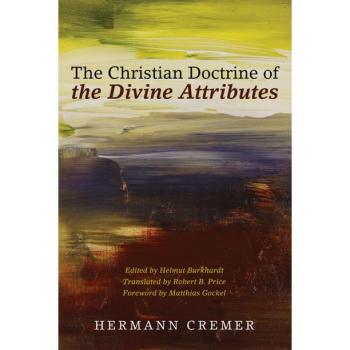The subject of torture is a tortuous–and, to me–torturous one. Especially since “9-11-2001” it has been much discussed by politicians and philosophers and often depicted in movies and on television shows. I find torture so revolting, disgusting, that I hate even to think about it let alone watch it on the screen. Sometimes, however, it seems almost impossible to watch a dramatic movie or television show without having to see some scene of torture. Even one of my favorite “prime time drama” television series–“Madam Secretary”–recently depicted such.
However, I think we need a national and churches-wide discussion about the ethics of torture. So here are my thoughts about it as of today. I remain open to changing my mind. But this has been my relatively settled opinion now for some time.
*Just a quick note to would-be responders here: Either read all of this or don’t respond. If you read it all and choose to respond, respond to what I actually say and do not misrepresent my expressed opinion. Do not go “picky” about facts; whether a few of my statements about American policy toward or use of torture (“enhanced methods of interrogation”) are absolutely factual is not the point. They are simply what I believe based on what I have read. Focus on the ethical issues raised and offer your own considered opinion supported by reasoning. Flames, sermons, accusations, etc., are not welcome and will simply be deleted. So, given all that, my invitation to those of you who value calm, reasoned ethical dialogue is to respond in that spirit*
Is Torture Ever Ethically Justified?
Roger E. Olson
The issue of torture came to the forefront of political and ethical debate in America during the invasions of Afghanistan and Iraq under President George W. Bush in 2003. This was, of course, in the aftermath of the terrorist attacks on New York City and Washington, D.C. in 2001. Journalists reported that American agents and soldiers were using “enhanced methods of interrogation” on suspected terrorists or would-be terrorists captured especially in Afghanistan. Most of the debate surrounded one particular method allegedly permitted by the president called “waterboarding.” Other “enhanced methods,” however, may have been used as well. Although the U.S. government never admitted to practicing torture to extract information from captives, many people argued that these “enhanced methods of interrogation” amounted to torture. In the U.S. a lively debate erupted about whether torture was ever justified.
President Barak Obama declared torture, including “enhanced methods of interrogation,” forbidden in the U.S. and by U.S. personnel. However, speculation about and charges that the U.S. held suspected terrorists or would-be terrorists in secret prisons in countries where torture is acceptable abounded. Many movies and television shows depicted these and the enhanced methods of interrogation-torture that might be used in them by those country’s interrogators under the watchful eyes of U.S. agents. Some critics have charged that holding suspected terrorists indefinitely in America’s own Guantanamo Bay detention camp (“Gitmo”) without due process amounts to torture.
Before “9-11-2001,” the terrorist attacks on New York City and Washington, D.C., America denied ever using torture as a means of interrogation. Nobody doubted, of course, that, at times and in places, interrogators occasionally took it upon themselves, without government sanction or permission, to use enhanced methods of interrogation. The debate that erupted in the first decade of the 21st century was over American policy that torture, under the guise of being called “enhanced measures” or “enhanced methods,” permitted by CIA agents and others with “special license” to use it/them. This was new and sparked a volatile debate—especially among Americans who believe in just war theory and believed America’s invasions of Iraq and Afghanistan were justified.
Traditional just war theory does not explicitly mention torture, but most ethicists have believed it rules it out. It is against the “spirit” of just war theory if not the letter. Also, international laws forbid use of torture, which many critics said is why the U.S. government chose to call these practices “enhanced methods of interrogation” or “enhanced measures.” On the other hand, many believers in just war theory and international law appealed to exceptional circumstances brought about by international terrorism. The question became how to prevent more deadly attacks, even possibly with “dirty bombs” if not nuclear weapons, without the use of torture.
The ethical debate clearly split along a dividing line—between ethical deontologists and ethical consequentialists but with the former sometimes using the latter approach and the latter sometimes using the former approach. (Rarely does an ethical debate divide precisely and exclusively along those lines!) Ethical deontologists condemned torture as always ethically wrong on the basis of the intrinsic dignity of every human life and the conviction that torture is cruel and inhumane—both with regard to the subject being tortured and the person(s) conducting the torture. Many Christian critics of torture, including “enhanced methods,” lined up with the secular deontologists adding to their deontological arguments that torture amounts to a defacing of the image of God and crossing a line that clearly violates Jesus’s will for humanity as expressed in the Sermon on the Mount. When asked why war doesn’t do the same, these Christians said that sometimes war is necessary while torture is never necessary. Both secular and Christian deontologists also raised consequentialist concerns about torture. First, if the U.S. violates international law in this way it can hardly point an accusing finger if/when other countries do the same—even to our own captives in their custody. In other words, sanctioned torture will inevitably lead to or contribute to a vicious cycle of torture that cannot be interrupted. Second, if it is ethically right to torture a captive suspect to extract information that might prevent a deadly attack, why is it not right also to torture his family? He might resist “enhanced methods, but he might break when shown his wife or children, for example, being tortured. If torturing him is justified, why is torturing his family not justified? Where do we draw the ethical line and why? Third, and finally, torture rarely succeeds in extracting reliable information. A person being tortured will at some point tell his interrogators what he thinks they want to know. “Information” extracted by torture is unreliable in most cases—which is why it is never necessary. (Notice how in that third argument deontological and consequentialist reasoning unites.)
Most defenders of use of torture by America appeal to consequences. There do not seem to be any deontological arguments for torture. However, defenders of torture often sweep aside deontological arguments as irrelevant in specific situations where many lives are at stake. For example, the argument that torture is absolutely wrong because of human dignity, torture’s defenders argue, falls away when and if torture is believed to be necessary to prevent many humans’ lives from being destroyed by terrorism. In other words, they admit, the ends justify the means even if the means are regrettable. Torture’s defenders appeal to the necessity to expand just war theory and even set aside international law in the context of terrorism. If there is good reason to believe that a captive potential (or actual) terrorist has information that, if revealed, would help prevent devastating loss of human lives, and if “enhanced methods of interrogation” are judged reasonably to be the only way to extract that information, then they are morally and ethically justified. (I am not aware of any defender of torture attempting to explain why torturing the suspect’s family to extract the information, if torturing him fails, would never be justified.)
One noted defender of torture, Harvard University law professor Alan Dershowitz, was probably the most influential defender of “enhanced measures” during the first decade of the 21st century. He defended rare use of torture only when sanctioned by a special court with a special “torture warrant.” Such a secret court was set up by the U.S. government under President George W. Bush, but whether it ever issued such “torture warrants” is debated. The secret court’s purpose was, allegedly, to sanction the arrest and even assassination of U.S. “enemies of the state.” Many suspect, however, that it also issued Dershowitz’s “torture warrants.” Under President Obama, allegedly, torture, including “enhanced methods of interrogation,” ceased.
During the 2016 U.S. presidential election at least one candidate publicly announced his intention, if elected president, to sanction the use of torture, or enhanced measures, by U.S. agents. This should stimulate a new round of ethical debate about torture.
Taking a kind of “bird’s eye view” of the whole situation, including the reality of terrorism and the arguments for and against torture, this writer comes to this ethical and moral conclusion. Once one accepts just war theory and believes that war is sometimes necessary (even if never “righteous”) one has opened the door to possible use of torture. It is a slippery slope indeed. Where to draw the line between, for example, bombing a city or town, and torturing a suspected terrorist? Both are absolutely contrary to the ideals of the Kingdom of God; both participate in vicious cycles of violence that seem to have no end point. Christians should always be impressed by the Sermon on the Mount and attempt to live by it—both individually and collectively as the people of God. Christians who take Jesus seriously ought always to practice a preferential option for peace which automatically also means opposing torture. The secular arguments against torture—both deontological and consequentialist—seem conclusive as well. Torture is unethical (to say nothing of contrary to international law).
The most convincing purely secular argument against torture is that it creates a slippery slope in which, eventually, someone such as a “secret court,” will decide it is necessary to torture a suspected terrorists’ family, even his children, in front of him, in order to extract information not forthcoming under torture of him alone. The question must be raised to the likes of Alan Dershowitz and other proponents of torture, even carefully controlled torture: Why would it be wrong for such a secret court ever to issue a “torture warrant” to torture a suspect’s wife and children if it is believed to be the only way to extract the information needed to save hundreds, thousands, perhaps even millions of lives? Where lies the line never to be crossed—and why?
On the other hand, this writer would be reluctant to condemn an interrogator who used torture on his or her own, if he or she knew for sure that it was the only way to save many innocent lives. In other words, torture, including “enhanced methods of interrogation,” should never be government policy and its practice should be condemned by both Christians and non-Christians. In other words, government agents should not be trained in torture or told they may use it—even by a secret court. In other words, however, and at the same time, this writer would sympathize with an individual interrogator who had very good reason to believe only torture would extract from a suspect information absolutely needed to prevent an imminent attack that would destroy many lives and used the least pain possible and necessary to extract that information. The “justification” of the torture, however, as regrettably necessary (not righteous), would have to be alongside of or after the fact.
Practically, “on the ground,” so to speak, that means I would advocate such an interrogator’s arrest and trial and hope that the judge or jury saw the necessity in what he or she did and acquit. The act would be judged as to whether it was analogous to killing in self-defense or other-defense.
As for the church, assuming the interrogator belonged to a Christian church, I would advocate repentance on his or her part and restoration to full fellowship after a determination by the church’s spiritual leaders that he or she did what was necessary to prevent imminent loss of life.
In other words, torture should never be public policy nor permitted or condoned by government or churches. At the same time, as with killing in self or other defense, it may sometimes be forgiven depending on the circumstances.












